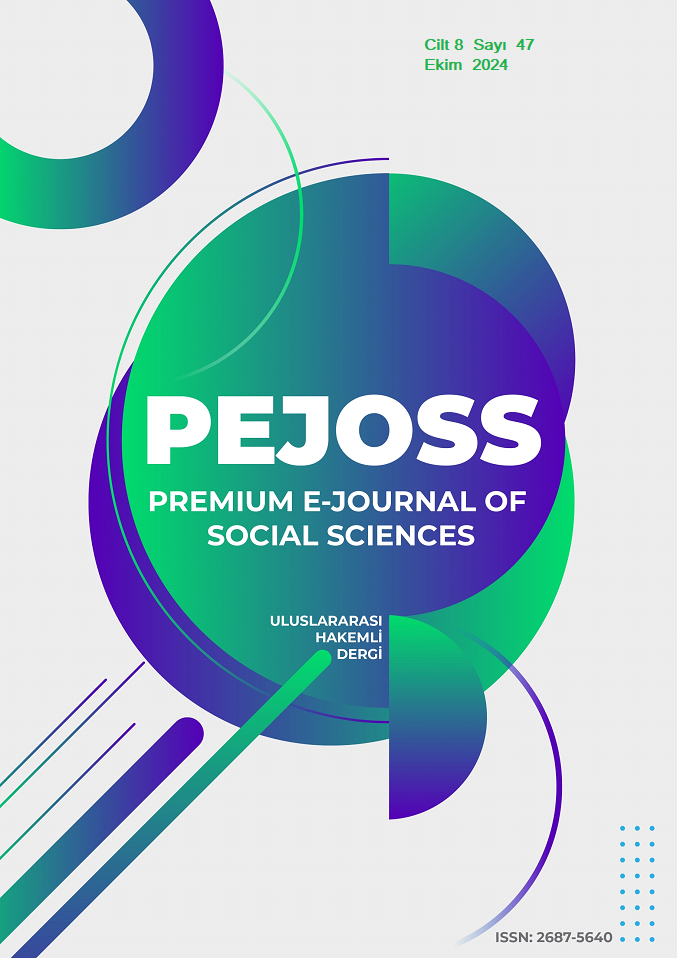A Research on Crew Resource Management Skill Levels of Ship Personnel
DOI:
https://doi.org/10.5281/zenodo.14020783Keywords:
Crew, Team Resource Management (TRM), Non-Technicall SkillsAbstract
In our study, which is based on the literature review of current empirical research on Crew Resource Management (EKY) in the maritime industry, it was aimed to evaluate the Crew Resource Management (EKY) skill levels of ship personnel residing in Turkey as a field study. For this purpose, a survey was carried out with seafarers who actually work on ships or have working experience. In this context, the interaction of Crew Resource Management (EKY) skill levels of ship personnel with NOTECH non-technical social (leadership and teamwork) and cognitive skills (decision-making, situational awareness) and how they differ according to sociodemographic characteristics were examined. The accessible universe of the study consists of 641 people residing, actually working or having working experience in Turkey by simple random method. Sociodemographic and occupational information and Team
Resource Management Scale (EKYS) were used as data collection tools in the study. In the study, the data obtained as a result of the survey were analysed and the research findings were revealed. As a result of the analysis, it was determined that the average score of the participating seafarers from the crew resource management differed statistically significantly according to age, gender, marital status, education, working time, position and ship type.
Downloads
References
Bonett, D. G., & Price, R. M. (2005). Inferential methods for the tetrachoric correlation coefficient. Journal of Educational & Behavioral Statistics, 30(3), 213-225.
Büyüköztürk, Ş. (2012). Sosyal Bilimler İçin Veri Analizi El Kitabı (17. baskı). Pegem A Yayıncılık.
Chauvin, C., Lardjan, S., Morel, G., Closterman, J. P., & Langard, B. (2013). Human and organisational factors in maritime accidents: Analysis of collisions at sea using the HFACS. Accident Analysis & Prevention, 59, 26-37.
Conceição, V. P., Basso, J. C., Lopes, F. C., & Dahlman, J. (2017). Development of a behavioral marker system for rating cadet’s non-technical skills. TransNav: The International Journal on Marine Navigation and Safety of Sea Transportation, 2(2), 255-262.
Cordon, J. R., Mestre, J. M., & Walliser, J. (2017). Human factors in seafaring: The role of situation awareness. Safety Science, 93, 256-265.
Crichton, M. T. (2017). From cockpit to operation theatre to drilling rig floor: Five principles for improving safety using simulator-based exercises to enhance team cognition. Cognition, Technology & Work, 19(1), 73-84.
Endsley, M. (1995). Toward a theory of situation awareness in dynamic systems. Human Factors, 37(1), 32-64.
Erkuş, A. (2006). Sınıf Öğretmenleri için Ölçme ve Değerlendirme: Kavramlar ve Uygulamalar. Ekinoks Yayınları.
Espevik, R., Saus, E. R., & Olsen, O. K. (2017). Exploring the core of crew resource management course: Speak up or stay silent. International Maritime Health, 68(2), 126-132.
Flin, R., Martin, L., Goeters, K., Hörmann, H., Amalberti, R., Valot, C., & Nijhuis, H. (2003). Development of the NOTECHS (non-technical skills) system for assessing pilots’ CRM skills. Human Factor and Aerospace Safety, 3(2), 95-117.
Flin, R., O'Connor, P., & Crichton, M. (2008). Safety at the Sharp End: A Guide to Non-Technical Skills. Ashgate.
Flin, R., Youngson, G. G., & Yule, S. (2016). Enhancing Surgical Performance: A Primer in Non-Technical Skills. CRC Press.
Grech, M. R., Horberry, T. J., & Koester, T. (2008). Human Factors in the Maritime Domain. CRC Press.
Helmreich, R. L., & Merritt, A. C. (1998). Culture at Work in Aviation and Medicine: National, Organizational and Professional Influences. Ashgate Publishing Limited.
Helmreich, R. L., Merritt, A. C., & Wilhelm, J. A. (1999). The evolution of crew resource management training in commercial aviation. International Journal of Aviation Psychology, 9(1), 19-32.
Hetherington, C., Flin, R., & Mearns, K. (2006). Safety in shipping: The human element. Journal of Safety Research, 37, 401-411.
International Maritime Organization. (2011). International Convention on Standards of Training, Certification and Watchkeeping for Seafarers (STCW): Including 2010 Manila Amendments. IMO.
Kanki, B., Helmreich, R., & Anca, J. (2010). Crew Resource Management. Academic Press.
O'Connor, P., & Long, M. W. (2011). The development of a prototype behavioral marker system for the US navy officers of the deck. Safety Science, 49(10), 1381-1387.
Röttger, S., Vetter, S., & Kowalski, J. T. (2013). Ship management attitudes and their relation to behavior and performance. Human Factors, 55(3), 659-671.
Saeed, F., Wall, A., Roberts, C., Riahi, R., & Bury, A. (2017). A proposed quantitative methodology for the evaluation of the effectiveness of human element, leadership and management (HELM) training. WMU Journal of Maritime Affairs, 16(2), 115-138.
Sætrevik, B., & Hystad, S. W. (2017). Situation awareness as a determinant for unsafe actions and subjective risk assessment on offshore attendant vessels. Safety Science, 93, 214-221.
Salas, E., Wilson, K. A., Burke, S. C., & Wightman, D. C. (2006). Does crew resource management training work? An update, an extension, and some critical needs. Human Factors, 48(2), 392-412.
Sandhåland, H., Oltedal, H., & Eid, J. (2015). Situation awareness in bridge operations: A study of collisions between attendant vessels and offshore facilities in the North Sea. Safety Science, 79, 277-285.
Tavşancıl, E. (2014). Tutumların Ölçülmesi ve SPSS ile Veri Analizi. 5. Baskı, Ankara: Nobel Yayıncılık.
Thomas, J. (2018). The socialization of cognitive and social skills: Differentiation in educational and industrial contexts. Journal of Educational Psychology, 110(3), 321-335.
Wahl, A. M., & Kongsvik, T. (2017). Johnny was here: from airmanship to airlineship. Applied Ergonomics, 59, 191–202.
Wu, C., Ma, L., & Liu, Y. (2015). The importance of assertiveness in maritime leadership: Communication and decision-making in team dynamics. Journal of Marine Policy, 57, 65-72.
Yule, S., & Smink, D. S. (2016). Surgical Coaching for Operative Performance Enhancement (SCOPE): Skill ratings and impact on surgeons' practice. Annals of Surgery, 264(1), 101-107.
Downloads
Published
How to Cite
Issue
Section
License
Copyright (c) 2024 Premium e-Journal of Social Science (PEJOSS)

This work is licensed under a Creative Commons Attribution 4.0 International License.


